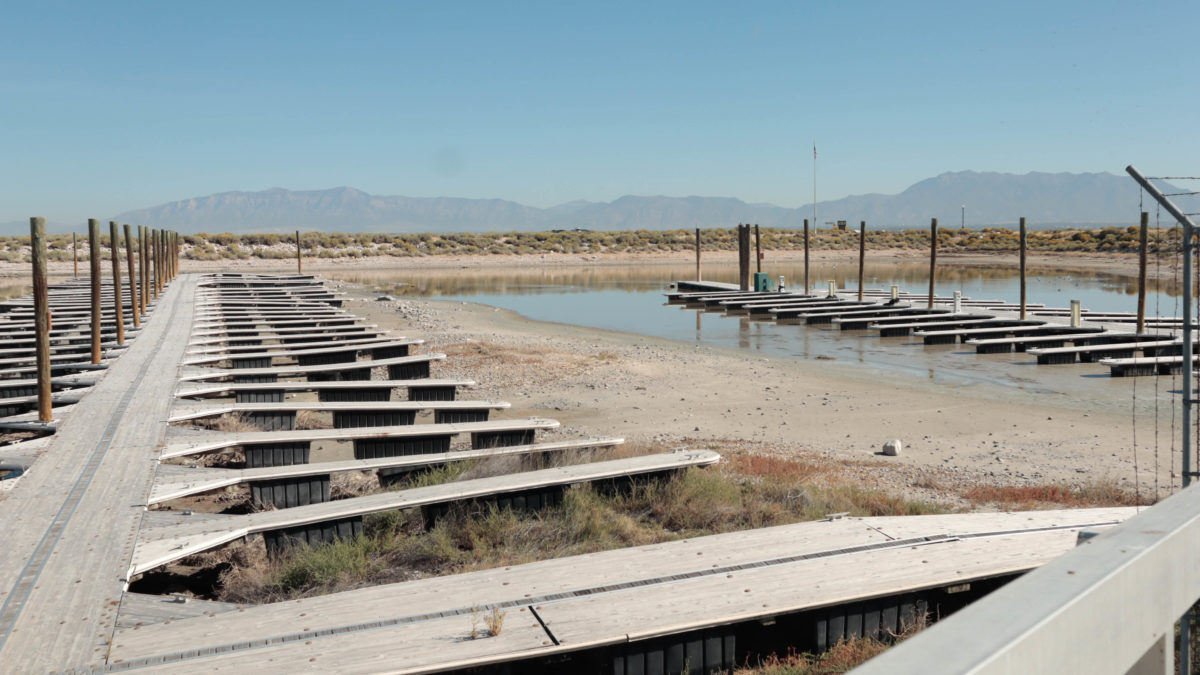This past month, conservation groups, both in Utah and nationally, filed a lawsuit against the state of Utah in an attempt to protect the Great Salt Lake.
The environmental groups suing the state of Utah include the Center for Biological Diversity, the Utah Rivers Council, the Sierra Club, Utah Physicians for a Healthy Environment and the American Bird Conservancy.
“The primary goal of the lawsuit is to hold the government of Utah accountable for their affirmative responsibility to protect the Great Salt Lake,” Anya Korfine, community water liaison for the Utah River Council, said. “The state of Utah holds the Great Salt Lake in trust for the people of Utah … And we feel like due to their refusal to take any meaningful action to get water to the lake, not just you know, legislation that claims it’s helping to like put actual water to the lake. We feel like they have not fulfilled their duty. So this lawsuit is a step to encourage them to fulfill that duty and protect the Great Salt Lake for their people.”
The Great Salt Lake is an incredibly vital resource to the wild and plant life of not only Utah, but the entire Western Hemisphere. If it were to dry up, the effects would be detrimental to everything that relies on the lake, from animals to plants to people.
“The Great Salt Lake is an incredible ecosystem, and it’s one of the largest remaining wetlands in the Western Hemisphere … it’s crucial for about 10 million or more migratory birds … it also supports a multibillion dollar economy in Utah,” Korfine said. “So in everything from recreation to industry, it’s an incredibly plentiful resource.”
The conservation of the Great Salt Lake, which has been a project that these conservation groups have been working on for decades, becomes more of an important topic as the drought continues and water levels deplete.
“Saving Great Salt Lake is the most important issue,” Deeda Seed, a senior campaigner for the Center for Biological Diversity, said. “Any of us who live here will be involved and if we don’t save the lake, we’re really not going to be able to live here anymore and have any quality of life. You know, toxic dust storms, we’ve seen examples of them in places like California where a water body called Owens Lake was dried up. It’s not good. It’s kind of apocalyptic … But it’s gonna take effort from all of us to prevent that from happening. And really what we need to do is ask our elected leaders to dedicate themselves to getting more water, more wet water, not promises of water, but actual water.”
Though last year’s snowy winter brought a lot of water to Utah, it still wasn’t enough to save the lake. Though more moisture-rich years would be ideal, there are things that can be done without a change in weather.
“We always encourage people to reach out to their legislator … they are the voice of the people, we elect them and they have an obligation to represent their people… call them, email them, contact them. It’s a little scary, but it’s really easy to do and it has a really powerful impact,” Korfine said.
Though many environmental issues seem to be complex, with no clear answer, the Great Salt Lake is something that can be saved. With the help of the community working with their legislators and these conservation groups, the Great Salt Lake is something that can be saved before it’s too late.
“Well, I think there is a solution,” Seed said. “This isn’t one of those problems, where we don’t have the resources, where we do not have the water. We just need to reallocate how we use the water. So it’s a solvable problem. But having said that, it’s also a problem that’s going to take a lot of effort from all of us to solve because of the politics.”
The lawsuit against the state of Utah is still in its early stages, but a solution to the depletion of the Great Salt Lake is possible. These conservation organizations are working with the state of Utah and on their own in order to save the Great Salt Lake and fight for the resources that the state of Utah has.
“The Utah Rivers Council is committed to this fight,” Korfine said. “We are not going to give up and we have the power to change the trajectory of the Great Salt Lake, it’s not a hopeless cause. It’s not too far gone, but the time to act is now and we’re rapidly running out of time. So while it’s scary, there’s hope. And we’re excited to work together with all Utahns to solve this crisis.”















